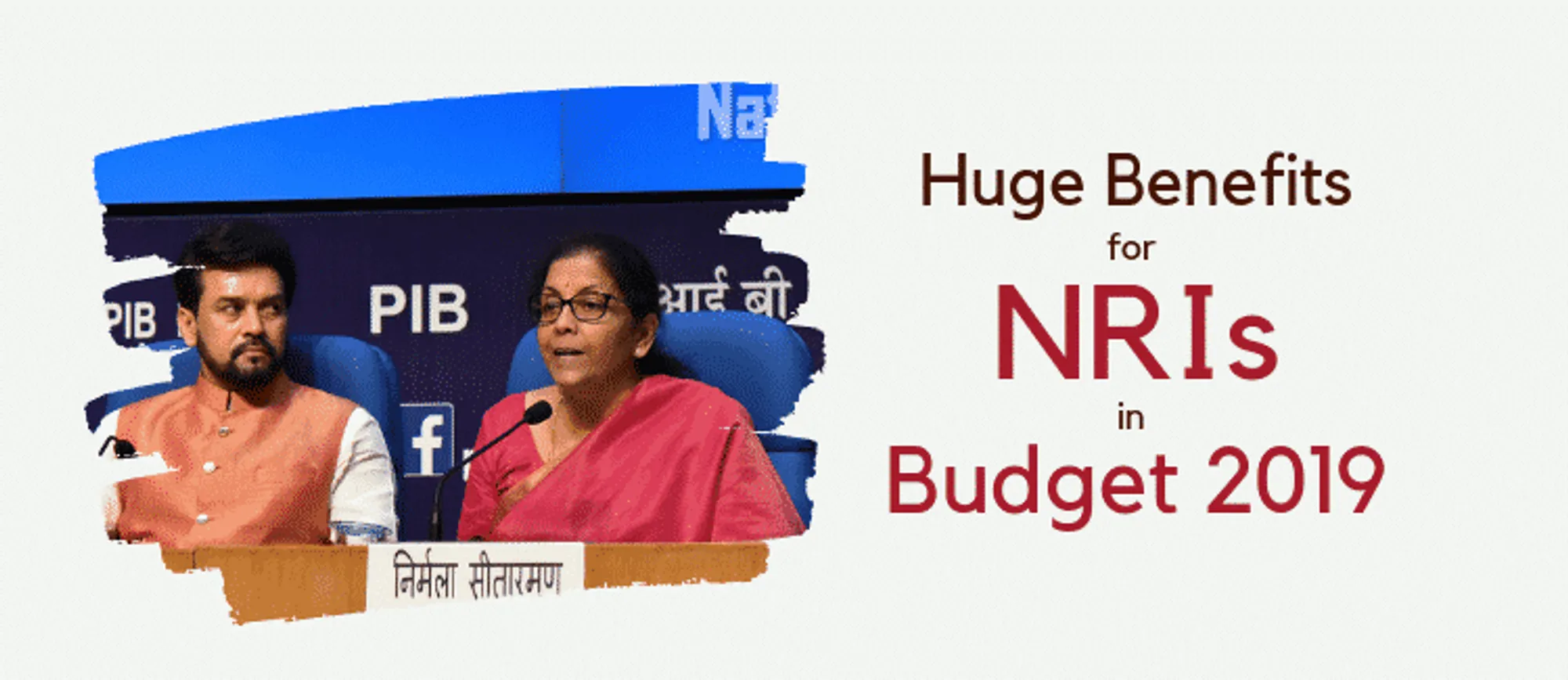NRIs have a reason to feel happy and relieved with the new Finance Minister Nirmala Sitharaman’s Budget for the year 2019.
For a start, their welcome into the country just became warmer! The Union Budget of 2019 has proposed to consider issuing the Aadhaar Cards to NRIs (who have Indian Passports) post their arrival in the country.
- Fast process for Aadhaar Card
- Easy NRI investments
- More Indian Embassies and High Commissions
- Global Investors Meet in India
Till this budget, NRIs had to wait for a period of 180 days. Earlier under the Aadhaar (Targeted Delivery of Financial and Other Subsidies, Benefits and Services) Act, 2016, NRIs who have resided in India for a period of 182 days or more in 12 months and with an Indian address could apply for Aadhaar. The issue of Aadhar card to NRIs on arrival to India will help NRIs to a great extent as aadhar card acts as both identity card as well as proof of address as it consists of both demographic and biometric data.
The Finance Minister declared “I propose to consider issuing Aadhaar card for non-resident Indians (NRIs) with Indian passports after their arrival in India without waiting for the mandatory 180 days.”
NRIs interested in investing in India can also heave a sigh of relief now – our Finance Minister paved the way for them to have easier access to Indian equities. The NRI-Portfolio Investment Scheme Route has now been merged with the Foreign Portfolio Investment Route.
In addition, with NIIF as an anchor, there will be annual Global Investors’ meet organised in India. This is being done to encourage major global investors to come and invest in India. Moreover, there are steps to open Foreign Direct Investment in aviation, media, animation AVGC and also to open up FDI up to a 100% level for insurance intermediaries. This will bring in a single regime for foreign investors. It also seeks to regulate investments and funds brought in by the non-resident Indians and person of Indian Origin.
The move on the FPI aspect has come about as part of the recommendation of the H R Khan Committee. The economy can be assured of larger pools of NRI capital through pooled and professionally managed structures. Foreign Portfolio Investment refers to the grouping of assets including bonds, equities and cash equivalents. These portfolio investments are held directly by an investor or managed by financial professionals.
In the past the cap on NRI participation through the FPI route had received serious push back from global fund managers. As reported in the media, the Securities and Exchange Board of India said if single and aggregate NRI/OCI holdings in assets under management of FPIs are below 25% and 50%, respectively, then such persons will be allowed to be constituents of the FPI. In case of breach, the FPI will need to comply within 90 days and in case it remains non-compliant even after 90 days, no fresh purchases will be permitted and such FPIs will have to liquidate their existing position in the Indian securities market within 180 days.
This move on FPI will bring in additional benefit since earlier in the year, SEBI came out with the rules for the merger and also exempted both housing finance and non-banking financial companies. From now, none of them will have to disclose the rise and fall in the shareholding due to encumbrance or release of encumbered shares. Currently, only the scheduled commercial banks and public financial institutions are exempted from disclosures.

